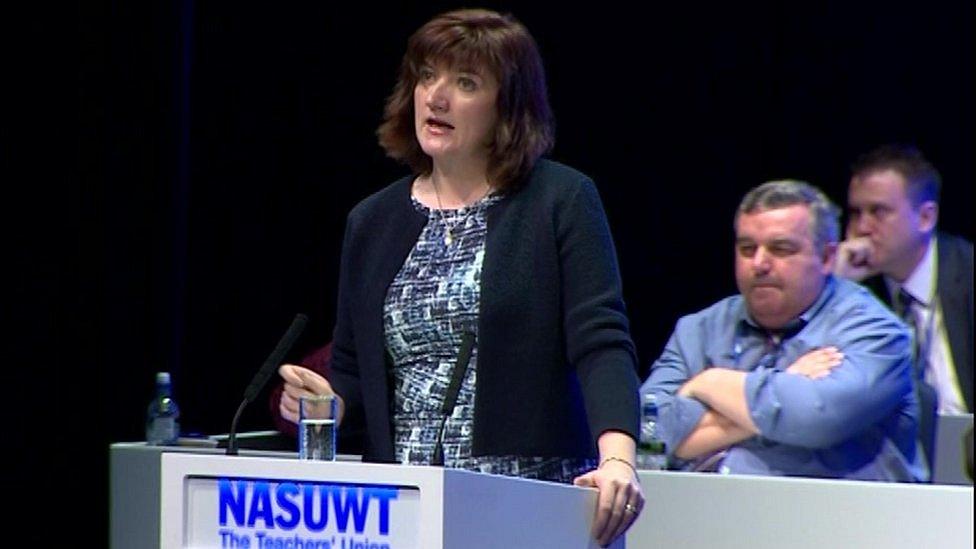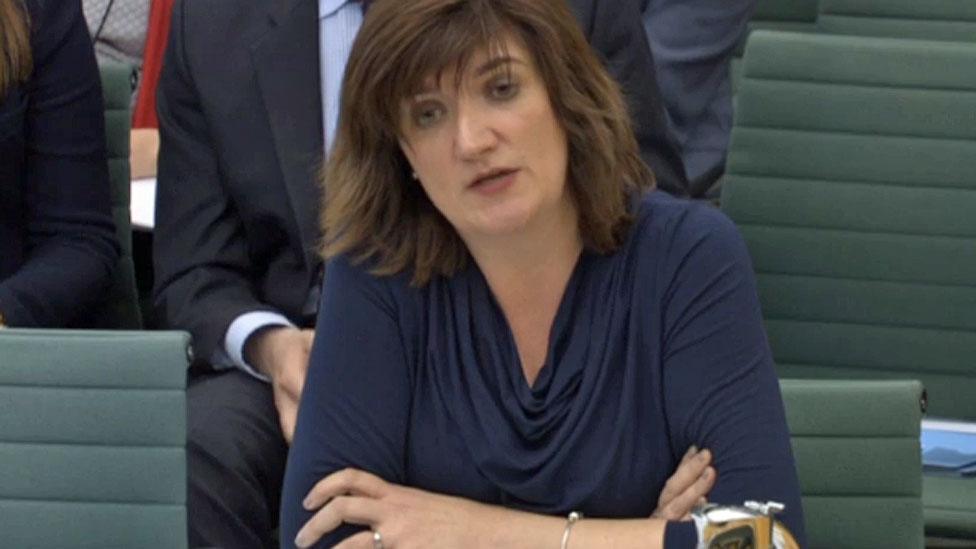Head teachers' leader doubtful about mass academisation
- Published

The benefits of mass academisation of schools are uncertain, says NAHT leader Kim Johnson
A head teachers' leader has expressed doubts about government plans to force all schools in England to become academies.
Incoming NAHT leader Kim Johnson, who is an academy head, says he knows the merits of autonomy and freedom.
But in a letter to the Daily Telegraph, he warns that the programme is costly and the benefits uncertain.
The government says it wants all schools to be able to enjoy academy freedoms.
It has published plans to require all schools to become academies by 2022.
But there has been opposition from teachers, Labour politicians and from some Conservative MPs and councillors.
'Trust us'
Now the National Association of Head Teachers, which mainly represents primary schools, has expressed its concerns.
Mr Johnson says in the letter: "I will happily persuade my colleagues of the merits of autonomy and freedom. But I have doubts about forcing every school in England to convert to academy status.
"The cost of this initiative is high and the benefits are uncertain. Smaller schools could suffer.
"We should be devoting our energy to what happens inside the classroom rather than top-down structural reform and I'll be disappointed if legislation is rushed into the Queen's Speech."
He told the BBC many schools had made the decision that working within a local authority structure worked for them and their community.
"Why change that? If the choice is become an academy because you know that actually you can improve the quality of what's going on, then that would seem the right thing to do. So give the choice. Trust in us. We do know what we're doing," he said.

England's Education Secretary Nicky Morgan will address the conference
His comments come as Education Secretary Nicky Morgan is preparing to address the NAHT conference in Birmingham.
Earlier this week, she defended the plans in front of the Education Select Committee, saying they would create "a strong, consistent system".
A dual system with academies running alongside local authority schools would be less efficient, she said.
'Tipping point'
Russell Hobby, general secretary of the NAHT, said there were concerns from some members who were leading good or outstanding schools.
"They've had the chance to convert to academy status for five years or more - they've got good reasons for not doing so. A government that talks about professional autonomy and delegating the control to the front line really needs to listen to that," he said.
"What they want to do is focus on teaching and learning in the classroom not on all the logistics admin and legal changes that would just be a distraction for them."
Paul Luxemore, executive head of the Coastal Academies Trust which oversees four secondary schools and one primary school, told BBC Radio 5 live: "By arguing that remaining local authority schools should have the choice not to become academies, in effect the NAHT are defending local authorities.
"I think we have already reached tipping point where local authorities in most parts of the UK can't provide the school improvement that they did in the past - so many schools have become academies already that the capacity for local authorities to deliver effective school improvement has been hugely diminished."
- Published26 March 2016

- Published27 April 2016
